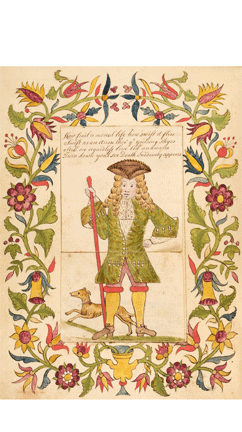Above, from On Biblical Subjects, by Robert Dodsley, a lift the flap illustrated manuscript circa 1720 (sold for £20,000 in 2021). Robert Dodsley's son - also named Robert Dodsley - published a volume of "Old English Plays" in 1744. In 1816, Charles Wentworth Dilke published volume two of his Old Plays, being a continuation of Dodsley's collection. Rodwell and Martin on Bond Street was the publisher. They also published Dilke's The Source and Remedy of the National Difficulties, deduced from principles of political economy, in a Letter to Lord John Russell. Included in volume two of Dilke's Old Plays was "Endymion; or, The man in the moon," a comedy by John Lyly. Two years later, Dilke's dear friend and neighbour, John Keats published his poem, "Endymion," the famous first line of which
Topics:
Sandwichman considers the following as important:
This could be interesting, too:
Robert Vienneau writes Austrian Capital Theory And Triple-Switching In The Corn-Tractor Model
Mike Norman writes The Accursed Tariffs — NeilW
Mike Norman writes IRS has agreed to share migrants’ tax information with ICE
Mike Norman writes Trump’s “Liberation Day”: Another PR Gag, or Global Reorientation Turning Point? — Simplicius
In 1816, Charles Wentworth Dilke published volume two of his Old Plays, being a continuation of Dodsley's collection. Rodwell and Martin on Bond Street was the publisher. They also published Dilke's The Source and Remedy of the National Difficulties, deduced from principles of political economy, in a Letter to Lord John Russell.
Included in volume two of Dilke's Old Plays was "Endymion; or, The man in the moon," a comedy by John Lyly. Two years later, Dilke's dear friend and neighbour, John Keats published his poem, "Endymion," the famous first line of which is: "A thing of beauty is a joy forever."

